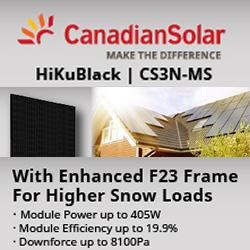PVinsights: Polysilicon surges as the stricter control on polysilicon smugglings enforced
Polysilicon price surges notably as Chinese authorities imposed stricter control over imports by reviewing foreign polysilicon sources. The demand in China has intensified as Chinese wafer makers are utilizing production at full and expanding capacities intensively. Hence, with the enforcement underway, Chinese polysilicon suppliers could further hike the price as buyers are trying to secure enough polysilicon. As affected by the price rally in China, Taiwanese and Korean polysilicon makers take this advantage to increase their price significantly.
Multi-crystalline wafer prices remain vulnerable to a correction as the price of downstream multi-crystalline cell price weakens. Nevertheless, due to the solid wafer consumption from multi-crystalline cell makers, the price correction of multi-crystalline wafer is rather limited. In addition, as polysilicon price has risen sharply, multi-crystalline wafer makers are trying hard to prevent the price from falling sharply as they are bearing great pressure of increasing cost. As the result, multi-crystalline wafer price drops limitedly this week, due to the solid demand and sharply increasing polysilicon cost. On the other hand, mono-crystalline wafer price has remained stable this week as supported by the strengthened demand in China. Moreover, the rising cost of polysilicon also enables mono-crystalline wafer makers to keep their quotes unchanged.
Multi-crystalline cell price remain pressured this week. After the price plummeted rapidly in the past few weeks, the price slump of multi-crystalline cell has gradually met some resistance as the ASP approaches the break-even point. Moreover, since the upstream wafer cost has declined rather incremental, the intensity of price competition has been reduced as multi-crystalline cell makers are trying to sustain the price from falling too severely in order to retain the margin. On the other hand, mono-crystalline cell price falls limitedly this week. As the price gap with multi-crystalline cell continues to expand, the demand of mono-crystalline has begun to falter and leading the price to tumble. Nevertheless, since the demand of mono-crystalline cell has improved steadily in China, mono-crystalline cell price declines only limitedly as compared to multi-crystalline ones.
Both multi-crystalline and mono-crystalline module prices are under pressure as Chinese module makers escalate price competition worldwide, especially in the US. As the domestic demand in China shrinks notably, Chinese module makers are forced to slash prices worldwide in order to relieve the swollen stockpiles. In the US, EU, Chinese module makers are leveraging overseas capacities to penetrate the markets with lower priced products. In Japan, solar panel prices are also being pressured as price competition enhanced by Chinese module makers. In India, the price competition intensified as the local solar panel makers are trying to capture more market shares. In Southeast Asia, the price remains relatively stable as the demand remains fairly stable. As the result, solar panel prices continue the descent as the price competition fuels worldwide.
Featured Product

